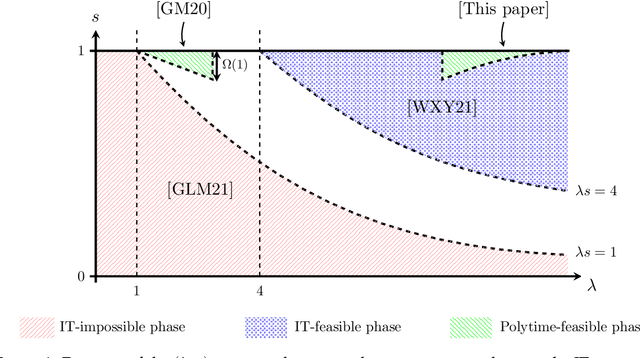Correlation detection in trees for partial graph alignment
Paper and Code
Jul 15, 2021
We consider alignment of sparse graphs, which consists in finding a mapping between the nodes of two graphs which preserves most of the edges. Our approach is to compare local structures in the two graphs, matching two nodes if their neighborhoods are 'close enough': for correlated Erd\H{o}s-R\'enyi random graphs, this problem can be locally rephrased in terms of testing whether a pair of branching trees is drawn from either a product distribution, or a correlated distribution. We design an optimal test for this problem which gives rise to a message-passing algorithm for graph alignment, which provably returns in polynomial time a positive fraction of correctly matched vertices, and a vanishing fraction of mismatches. With an average degree $\lambda = O(1)$ in the graphs, and a correlation parameter $s \in [0,1]$, this result holds with $\lambda s$ large enough, and $1-s$ small enough, completing the recent state-of-the-art diagram. Tighter conditions for determining whether partial graph alignment (or correlation detection in trees) is feasible in polynomial time are given in terms of Kullback-Leibler divergences.
 Add to Chrome
Add to Chrome Add to Firefox
Add to Firefox Add to Edge
Add to Edge